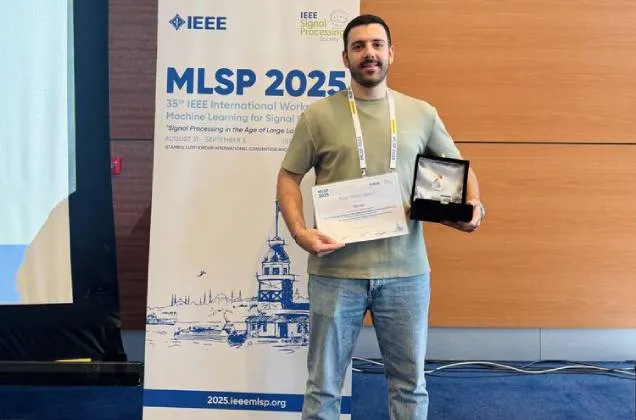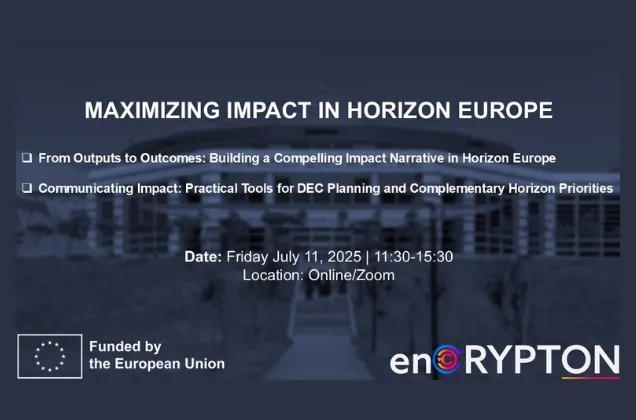19/03/2012
Climate Change Forum at Sabancı University:
Regional and Global Climate Change: Physical Observations and Policy Choices
The Sabancı University Istanbul International Center for Energy and Climate (IICEC) held the Climate Change Forum titled “Regional and Global Cimate Change:
Physical Observations and Policy Choices,” its second event in the wake of the inaugural Global Energy Forum.
The forum was hosted by Sabancı University President Professor Nihat Berker and International Energy Agency Chief Economist and IICEC International Board of Advisors Honorary Chairman Dr. Fatih Birol.
President Nihat Berker delivered the opening message of the Sabancı University Board of Trustees Chair Güler Sabancı. In her message, Güler Sabancı stated that climate change was a serious and growing threat and the international interest in this important conference was a recognition of that fact. Güler Sabancı continued:
“As announced by the OECD, ‘the impact of climate change on our environment, our economies and our security is one of the defining issues of our era.’ Physical observations in recent years point to important signals that climate change has become a truly global challenge which threatens our lives. Rising sea levels jeopardize coastlines. The continents are exposed to danger by powerful storms and floods. Families are being forced to leave their homes as climate refugees from shrinking islands.”
Güler Sabancı: Humanity has been slow, for too many years, to respond to the magnitude of the climate change threat.
Güler Sabancı mentioned the United Nations report which projects that by mid-century, water availability in already dry areas will decrease by 10 to 30 % just due to climate change, and the World Health Organization data which estimates that climatic changes already cause over one hundred and fifty thousand deaths each year. Sabancı claimed that humanity had been slow, for too many years, to respond to the magnitude of the climate change threat, and that the time we had to reverse this trend was running out. Sabancı said that distinguished experts coming from different sectors and countries were there to share their views as to how we could reverse this trend by facilitating the right policies, investments and technologies.
Concluding her message, Sabancı said that the decision to form the Istanbul International Centre for Energy and Climate was backed by the growing role of Turkey in the energy landscape, the regional shift of international energy production and consumption to the developing countries, and the strategic position of Istanbul. Sabancı continued that there was a need for an international approach with international resources, and a globally recognized networking center, and that IICEC would be fully independent to study, report on and contribute to the future of energy and climate topics, globally. Sabancı underlined that the conference was one of the important steps by Sabanci University on the road to the founding of this center.
Observations on energy and climate by Fatih Birol
Following the first session was a press conference by International Energy Agency Chief Economist and IICEC International Board of Advisors Honorary Chairman Dr. Fatih Birol and Sabancı University President Professor Nihat Berker.
In his speech titled “Energy and Climate–is our climate path already locked-in?” Fatih Birol discussed fresh challenges that add to already worrying trends. According to Fatih Birol, these challenges were economic concerns diverting attention from energy policy and limiting the means of intervention; the uncertainty surrounding nuclear energy in the aftermath of the Fukushima disaster; turmoil in the Middle East and North Africa raising questions about region’s investment plans; and the rebound of CO2 emissions to a record high.
Fatih Birol said that energy efficiency was crucial for energy security and reversing climate change, and argued that global energy efficiency development was going in the wrong direction, that EU’s oil and gas import bills recorded historical highs, and that high oil price was a burden for the vulnerable EU economy, while a weaker Euro would exacerbate its negative impact.
Birol asserted that emerging economies continued to drive global energy demand, and that global energy demand would increase by one-third from 2010 to 2035, with China and India accounting for 50% of the growth.
Fatih Birol: Energy is at the heart of the climate challenge. There is urgent need for bold political action.
Birol said that energy was at the heart of the climate challenge and that the overall value of subsidies to renewable energies was set to rise. According to Fatih Birol, the subsidy granted to renewable energies was $66 billion in 2010, compared with $409 billion for fossil fuels. Birol said, “This needs to climb to $250 billion in 2035 as rising deployment outweighs improved competitiveness. By 2035, cumulative CO2 emissions from today will exceed three-quarters of the total since 1900, and China’s per-capita emissions will match the OECD average. Without further action, by 2017 all CO2 emissions permitted in the 450 Scenario will be ‘locked-in’ by existing power plants, factories and buildings.”
Birol said that all countries had agreed to implement a new framework to reduce global greenhouse gas emissions in Durban, and concluded with some words of caution: “A protocol has to be agreed by 2015 and enacted by 2020 – the timeframe increases dangerously the risk of a lock-in into a high carbon infrastructure. By 2017 only 15% of global emissions will be covered by a carbon price. Energy investments have not become less carbon-intensive since Durban. There is urgent need for bold political action.”



